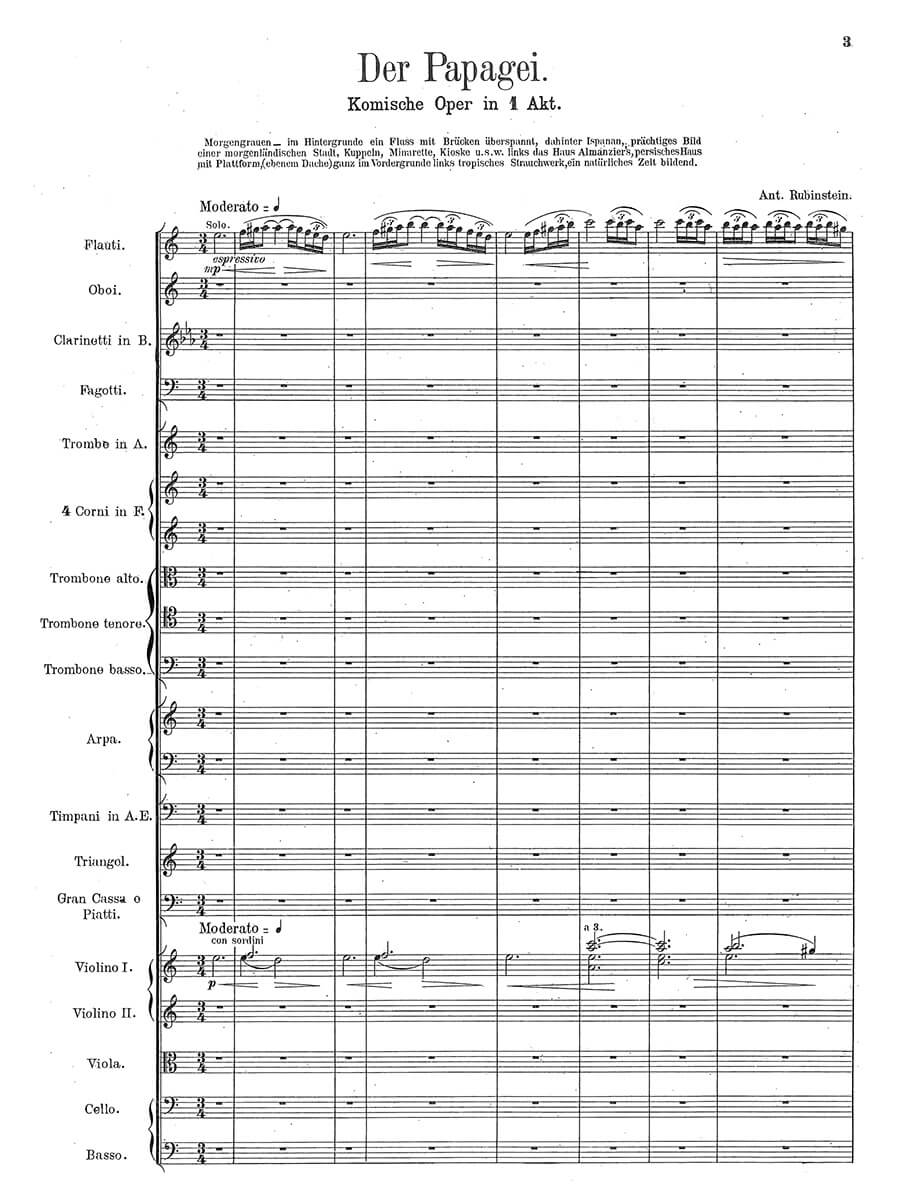The Parrot (with German libretto)
Rubinstein, Anton
34,00 €
Preface
Anton Grigorevich Rubinstein
(28 November [O.S. 16 November] 1829, Vykhvatintsy, Podolia, Russia [now in the Transnistria borderland of Moldavia] – 20 November [O.S. 8 November] 1894, Beverly Hills, California, USA)
The Parrot
a German comic opera in one act with a libretto by Hugo Wittmann after a Persian fairy tale
Composed: 1883-1884
First performance: 1884, Hamburg, conducted by the composer
Publication: Bartholf Senff (Leipzig) published the full score for the first performances.
Preface
Best known as the founder of the St. Petersburg Conservatory, Anton Rubinstein was one of the great nineteenth-century keyboard virtuosos. The summit of his performing career was a series of seven consecutive “Historical Recitals” covering the history of piano music. He presented these throughout Eastern Europe and the United States as a “Steinway artist,” receiving as much as 200 dollars (in gold) per concert, plus all expenses. Each recital could feature as many as eight full piano sonatas, plus encores: they made powerful impressions on fellow pianists from Clara Schumann to the young Sergei Rachmaninoff. The first recital of each series included selections by Byrd, Bull, Couperin, Rameau, Scarlatti, and Bach: these contrapuntal and melodically-dominated pieces demanded a contrasting touch that Rubinstein became known for. In addition to virtuosity and an encyclopedic memory, he was praised for his tone, sensuous style of playing, and stamina: he gave a total of 215 American concerts in 239 days (some times as many as three per day), and invested the proceeds in real estate near Saint Petersburg.
Anton Rubinstein was born 150 kilometers northwest of Odessa, raised in the Russian Orthodox faith (his family converted from Judaism and was baptized when he was five), and educated in Moscow (1834-39) and Paris (1839-40) where he played for Chopin and Liszt. After a three-year concert tour of Europe and a shorter tour of Russia, Anton (age fourteen) and his brother Nikolai (age eight) played for Tsar Nicholas I and the Imperial family at the Winter Palace in Saint Petersburg.
From 1844-1846, both Rubinstein brothers were based in Berlin, where they were encouraged by Mendelssohn and Meyerbeer. By age seventeen, Anton knew he could no longer pass for a child prodigy, so he (unsuccessfully) sought the support of Liszt in Vienna and struggled to make a living from teaching in Berlin. After returning Saint Petersburg due to the Revolution of 1848, he performed and composed frequently for the Imperial Court, receiving substantial support from the Grand Duchess Elena Pavlovna, the Tsar’s sister-in-law. …
Read full preface > HERE
Score Data
| Edition | Opera Explorer |
|---|---|
| Genre | Opera |
| Size | 210 x 297 mm |
| Printing | Reprint |
| Pages | 158 |
